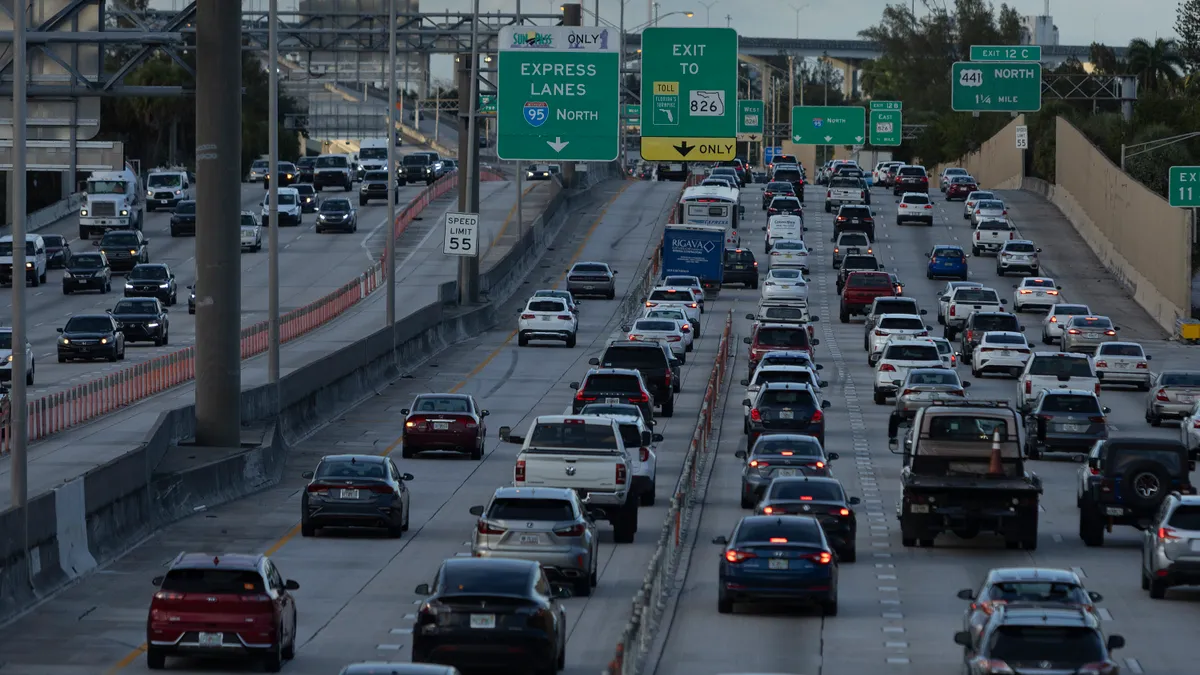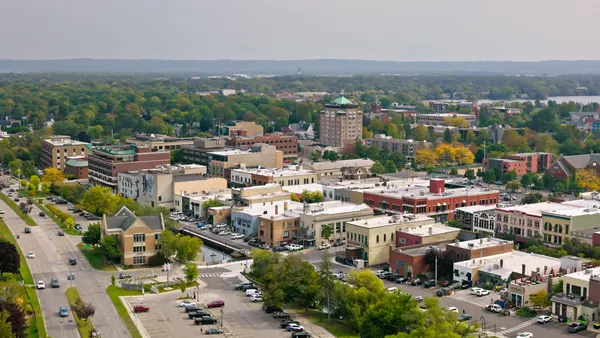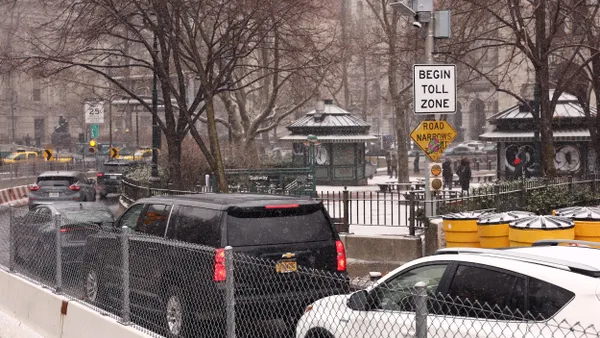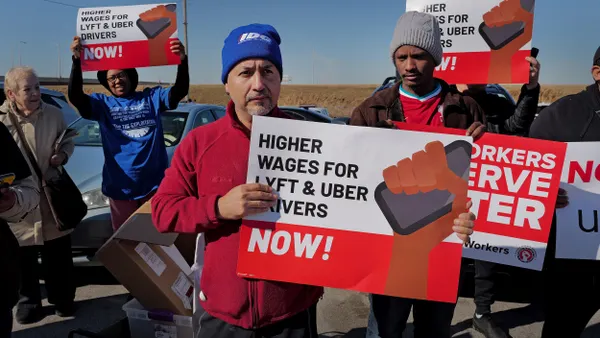Dive Brief:
- State, local and federal emissions policies already in place will reduce carbon emissions from U.S. transportation sources in 2030 by 19% from 2019 levels, according to an analysis released Thursday by America Is All In, a climate advocacy coalition supported by Bloomberg Philanthropies.
- "We've actually made a lot of progress," said Nate Hultman, corresponding author for the report and director of the Center for Global Sustainability at the University of Maryland. But additional action could further reduce transport emissions, bringing the country closer to meeting President Joe Biden's overall goal of a 50% to 52% reduction in U.S. carbon emissions by 2030.
- Separately on Thursday, the Federal Highway Administration announced a new program, part of the bipartisan infrastructure law, called the Carbon Reduction Program, making available $6.4 billion in formula funding for states and localities over five years.
Dive Insight:
Cities, states and businesses continue to show leadership in reducing carbon emissions, said Hultman, giving him hope that the 2030 climate goals can be met. He pointed to the enactment this month of Maryland's Climate Solutions Now Act, which sets a target for cutting greenhouse gas emissions 60% below 2006 levels by 2031. Meanwhile, California is readying tighter emissions regulations and mandates for zero-emission vehicle sales.
But with additional efforts by Congress, state and local governments and the private sector, GHG emissions from transportation could be cut by up to 34% by the end of the decade, the analysis determined. Specific actions and examples from the report include:
- Federal: continuation of the $7,500 tax credit for the purchase of electric vehicles through 2030; and increased fuel economy standards, including for heavy-duty vehicles.
- Cities and states: zero-emission vehicle mandates; setting targets for municipal electric vehicle fleets; efforts to improve mobility options and reduce vehicle use; updated building codes requiring new and renovated buildings to include EV charging infrastructure.
- Private sector: invest in research and development of alternative fuels; decarbonize the power grid.
The administration's Carbon Reduction Program requires states to develop carbon reduction strategies in consultation with Metropolitan Planning Organizations. Eligible projects include:
- Bus Rapid Transit corridors and dedicated bus lanes.
- Micromobility and biking.
- On- and off-road trails for pedestrians, bicyclists and other nonmotorized forms of transportation.
- Congestion pricing and travel demand strategies.
- Truck stop and port electrification.
"We have an ambitious climate target," Hultman said. "It's an achievable target but it's only achievable if we keep making good choices."












